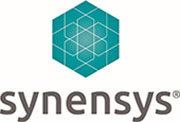 Synensys was awarded a research contract by The U.S. Food and Drug Administration (FDA) to conduct the study “Improving the Reliability, Interoperability, Agility, and Quality of Laboratory Data Exchanges using System Safety Engineering Methods” under an FDA Broad Agency Agreement. With over 13 billion laboratory tests performed across the U.S. each year, patients, providers, public health officials, and researchers depend on reliable laboratory data to diagnose, treat, prevent, and manage disease, especially during the COVID-19 pandemic.
Synensys was awarded a research contract by The U.S. Food and Drug Administration (FDA) to conduct the study “Improving the Reliability, Interoperability, Agility, and Quality of Laboratory Data Exchanges using System Safety Engineering Methods” under an FDA Broad Agency Agreement. With over 13 billion laboratory tests performed across the U.S. each year, patients, providers, public health officials, and researchers depend on reliable laboratory data to diagnose, treat, prevent, and manage disease, especially during the COVID-19 pandemic.
Synensys and their project team, including experts from the Massachusetts Institute of Technology, the University of Nebraska Medical Center, the College of American Pathologists, Deloitte Consulting, LLP, and JP Systems applied safety engineering methods to assess, measure, document, and analyze the safety and quality of the U.S. laboratory data ecosystem. Our research team used the Systems Theoretic Process Analysis (STPA) methodology to proactively identify and highlight systemic safety flaws and opportunities for future system redesign.
Our initial research provides a “call to action” for redesigning the U.S. laboratory data ecosystem to improve the safety, quality, and interoperability of laboratory data used for clinical decision-making and population health. Our initial STPA results provide a comprehensive safety analysis that can be used by regulators, vendors, standards development organizations, public health agencies, health systems, health professionals, and patients to catalyze system change and improve patient safety.
Click here to read the Overview
Click here to read the Executive Summary
Click here to read the Full Report
 Synensys, headquartered in Peachtree City, Georgia, is a trusted leader in safety management
Synensys, headquartered in Peachtree City, Georgia, is a trusted leader in safety management
technology and performance improvement for federal, military, commercial, and international
organizations since 2005. The Synensys team consists of seasoned safety and quality
professionals in medicine and aviation, with expertise in change management, human factors,
system safety, research, strategy, training, gap analyses, and safety performance analytics.

